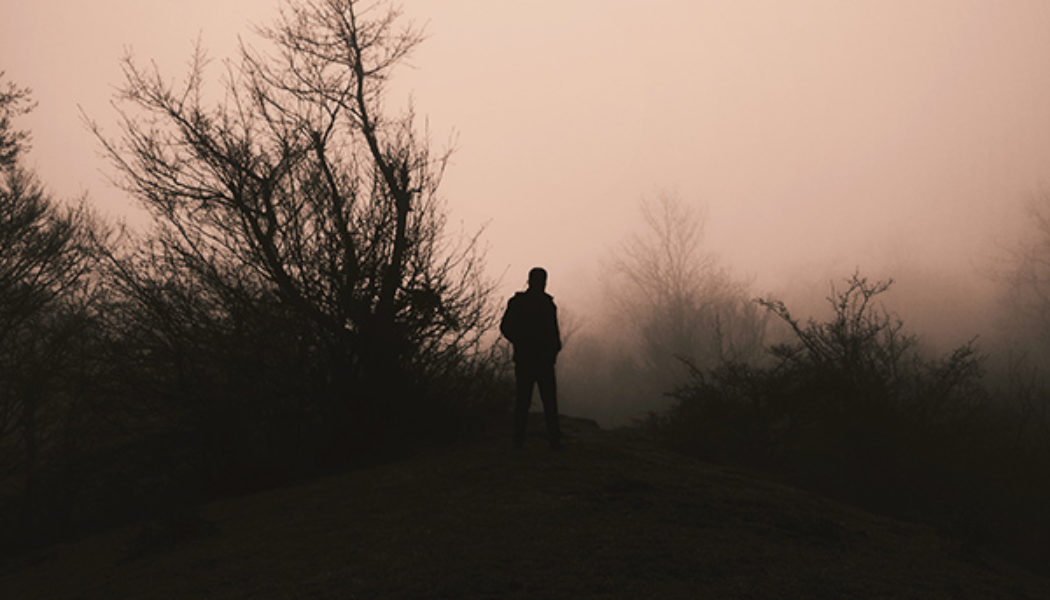Growing up evangelical, I was taught that your personal conscience is law. God uses the Holy Spirit to guide and convict us through our innermost selves. So when the conscience speaks, not to listen is a sin. Your conscience can be mistaken, of course, but really only in one direction: a seared conscience. If you are insufficiently attentive to God’s word, or if you allow a particular sin to dominate you, then your conscience, rather than being God-guided, becomes “seared”: deaf to the promptings of the Spirit. But otherwise, I was told, when your inner voice speaks with conviction, you are morally obligated to obey.
What nobody told me was that your conscience, or what feels like your conscience, can be entirely mistaken through no fault of your own. Just like it’s possible to feel no guilt when you should, it’s possible to feel guilt or anxiety or shame over things that you shouldn’t feel bad about at all. Nobody told me how your mind can be your own worst enemy. How it can fixate on imaginary sins. Nobody warned me about moral scrupulosity, the type of obsessive-compulsive disorder (OCD) I suffer from. Nobody warned me how anxiety and fear can take the thing you care about most – your faith – and turn it against you.
OCD is what psychologists call an “ego-dystonic” condition: your fears come from the things you value the most, your greatest hopes, your most cherished aspirations – the kind of person you most deeply desire to be. I deeply desire to be a trustworthy, safe, responsible, morally upright person. So my OCD takes the form of fear that I’m exactly the opposite. Fear that I’ve behaved irresponsibly. Fears that I’ve harmed people in the past. And no matter how little evidence I have for these fears, no matter how many times or in how much detail wise friends reassure me that I haven’t harmed anyone, my OCD never lets me accept that reassurance. There’s always something my friends must have missed, that I must have overlooked. There’s always “one more thing.”
Having OCD is like living with Columbo. There’s always just “one more thing,” one more doubt, one more detail. One more fear. And each fear feels like an accusation. The accusation that I’m an immoral, irresponsible person who has done grave harm and must live under judgment forever. That I can never be redeemed.
OCD is surprisingly prevalent in the general population: around one in every hundred people has it. In spite of this – and in spite of how disabling the condition can be – the condition is widely, sometimes frustratingly, misunderstood. Typically, when people hear the term “OCD” they imagine obsessively tidy people: it’s not uncommon to hear someone refer to themselves as “a little OCD” about tidying their desk. The better informed, when asked about OCD, may think of someone who compulsively washes their hands. But the reality of OCD, especially in its severe and extreme forms, is much more debilitating.
It’s washing your hands until they bleed. It’s ruminating alone for hours about harms you fear you’ve caused. Thinking over an event that occurred a decade ago again and again, finding it impossible to let go. And those are the good days. On the bad days OCD can look like locking yourself in the bedroom to agonize alone for ten or twelve hours. And when you’re done, you have a kind of hangover to deal with: the physiological cost of intense, anxious focus on the same thought for hours on end. Your body is worn out. Your mind is in a fog. And even then, when you’re wracked with shame over your endless rumination, the guilt you feel acts to tip you back into the habits that brought you to that point in the first place. Just check one more time. One more thing.

Photograph by Majid Rangraz
OCD can be treated. One way to do that is called “exposure and response prevention therapy” (ERP). Over time, in safe environments, you are exposed to the fears that torment you. And over time – often with the help of medications – your mind learns not to catastrophize or obsess about imagined failures. Slowly and sometimes painfully, you learn to tolerate uncertainty.
But even beginning treatment requires a lot of faith. To get better, you have to believe that it’s appropriate to treat your fears as irrational, as medical problems and not existential threats. Which is a leap of faith. And, from the perspective of someone with OCD, also a risk. From the outside that perceived risk might look ridiculously tiny. Rationally, the chances of accidentally giving your family a fatal disease because you didn’t wash your hands enough are infinitesimal. But to someone living with OCD that risk is reasonable, even urgent. What would you do if one of them died from your negligence? You’d better wash one more time, just to be safe. You can’t risk it.
True conscience is not a hyper-individual inner experience, but a knowing with others, a cleaving to the wisdom of God’s Word and the witness of the church.
This disconnect between inner self and outside reality wears on the family and friends of people with OCD, asked again and again for reassurance that the sufferer’s worst anxieties won’t come true. To them the irrationality of these catastrophic fears is obvious. But to the OCD sufferer it’s obvious that those catastrophic fears might, at any moment, come true. And the reassurance feeds the OCD, sending a signal to your brain that there really might be a threat present. Then even that reassurance becomes a source of doubt and unease. Maybe you left out a crucial detail. Maybe the other person isn’t really trustworthy. Maybe they’re all lying to you. Just one more thing.
Another serious misconception about OCD is that sufferers know what they are doing is irrational. Sometimes they do but often they don’t. People with “low-insight” OCD aren’t sure if their fears are irrational. Subjectively, their fears feel real, urgent, and serious. With successful treatment, it can be possible to look back and see irrational fears for what they are. Without treatment there are no such guarantees. The parts of the brain that warn of danger are on constant high alert in the minds of those suffering from OCD. The psychological equivalent of alarm bells are going off; red alerts warning you that something terrible will happen if the compulsions inherent to OCD are neglected.
Instead of guidance and comfort, your conscience – or what seems to be your conscience – gives you just one message, again and again: be afraid. How do you summon the faith to go against your own conscience? What vantage point can be taken to objectively weigh up the situation you’re in? No matter where you go, there your mind is. And along with it, there is the fear.
In Fear and Trembling Kierkegaard describes Abraham’s obedience to God’s demand he sacrifice Isaac as entailing the “teleological suspension of the ethical.” The ethical standards of society embodied in the perspective of Abraham’s wife warned that sacrificing his eldest son would be an immoral act. But faith required Abraham to stand alone, trusting in God’s promises over and, if necessary, against what society told him was ethical, just, and right. Obvious and apparent good has to be rejected for the sake of the ultimate goodness of God.
When you suffer from moral scrupulosity, you find yourself forced to practice a kind of teleological suspension of the ethical too. But here the ethical standard you must suspend is your own – of the standards of right and wrong given you by OCD. You have to choose the ego-dystonic option, no matter how abhorrent it seems. While the voice that feels like your conscience screams at you to repent or confess or make recompense for some imagined harm, you have to trust in the voices of others. Like Abraham, you keep faith in God’s promises, his ultimate goodness, but as mediated through the wise voices of family, friends, doctors: people who will your good.
And you have to. For the good of your family and to honor God you must take the risk that you are committing sin, that you’re causing harm. This means accepting a peculiar kind of suffering. Ask me to sacrifice my life for my family and I will, without hesitation. But ask me to willingly take on the fear, anxiety, and shame of OCD for my family, and I curl into a ball. Because to my mind, the latter feels like you are asking me to become unrighteous for the sake of righteousness. And that’s a much, much heavier burden to bear. Even though the ideas OCD places in my mind are not, in the end, true, it doesn’t feel that way.
This life demands more of us than we can imagine, but not more than we can bear. Because we don’t bear it alone. True conscience is not a hyper-individual inner experience, but a knowing with others, a cleaving to the wisdom of God’s Word and the witness of his body here on earth, the church. Conscience, understood this way, demands not that we follow every whim of our fallen minds, but that we collectively trust in the grace and goodness of the Father.
When your mind turns against you, you need other minds to ground you. In OCD – and in many other mental health conditions – recovery requires you to take a leap of faith, believing against your own deeply felt beliefs, accepting that you can’t always trust your mind, but that you can trust in God’s love for you. And in that love, he has given you voices of compassion and wisdom. Some days those voices will be all you have: a single faint, flickering light in the darkness. But that’s OK. It’s enough. It has to be.








